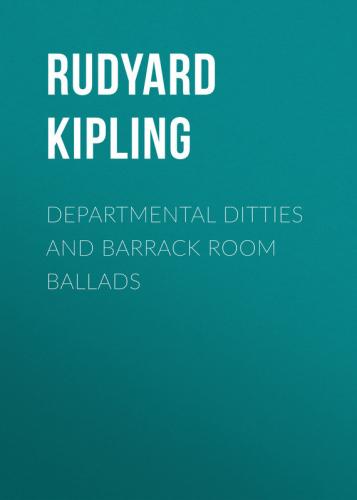The lucky owner’s head,
If you love me as I love you
What can Life kill or Death undo?
So long as Death ‘twixt dance and dance
Chills best and bravest blood,
And drops the reckless rider down
The rotten, rain-soaked khud,
So long as rumours from the North
Make loving wives afraid,
So long as Burma takes the boy
Or typhoid kills the maid,
If you love me as I love you
What knife can cut our love in two?
By all that lights our daily life
Or works our lifelong woe,
From Boileaugunge to Simla Downs
And those grim glades below,
Where, heedless of the flying hoof
And clamour overhead,
Sleep, with the grey langur for guard
Our very scornful Dead,
If you love me as I love you
All Earth is servant to us two!
By Docket, Billetdoux, and File,
By Mountain, Cliff, and Fir,
By Fan and Sword and Office-box,
By Corset, Plume, and Spur
By Riot, Revel, Waltz, and War,
By Women, Work, and Bills,
By all the life that fizzes in
The everlasting Hills,
If you love me as I love you
What pair so happy as we two?
CERTAIN MAXIMS OF HAFIZ
If It be pleasant to look on, stalled in the packed serai,
Does not the Young Man try Its temper and pace ere he buy?
If She be pleasant to look on, what does the Young Man say?
“Lo! She is pleasant to look on, give Her to me today!”
Yea, though a Kafir die, to him is remitted Jehannum
If he borrowed in life from a native at sixty per cent. per annum.
Blister we not for bursati? So when the heart is vexed,
The pain of one maiden’s refusal is drowned in the pain of the next.
The temper of chums, the love of your wife, and a new piano’s tune —
Which of the three will you trust at the end of an Indian June?
Who are the rulers of Ind – to whom shall we bow the knee?
Make your peace with the women, and men will make you L. G.
Does the woodpecker flit round the young ferash?
Does grass clothe a new-built wall?
Is she under thirty, the woman who holds a boy in her thrall?
If She grow suddenly gracious – reflect. Is it all for thee?
The black-buck is stalked through the bullock, and Man through jealousy.
Seek not for favor of women. So shall you find it indeed.
Does not the boar break cover just when you’re lighting a weed?
If He play, being young and unskilful, for shekels of silver and gold,
Take his money, my son, praising Allah. The kid was ordained to be sold.
With a “weed” among men or horses verily this is the best,
That you work him in office or dog-cart lightly – but give him no rest.
Pleasant the snaffle of Courtship, improving the manners and carriage;
But the colt who is wise will abstain from the terrible thorn-bit of Marriage.
As the thriftless gold of the babul, so is the gold that we spend
On a derby Sweep, or our neighbor’s wife, or the horse that we buy from a
friend.
The ways of man with a maid be strange, yet simple and tame
To the ways of a man with a horse, when selling or racing that same.
In public Her face turneth to thee, and pleasant Her smile when ye meet.
It is ill. The cold rocks of El-Gidar smile thus on the waves at their feet.
In public Her face is averted, with anger. She nameth thy name.
It is well. Was there ever a loser content with the loss of the game?
If She have spoken a word, remember thy lips are sealed,
And the Brand of the Dog is upon him by whom is the secret revealed.
If She have written a letter, delay not an instant, but burn it.
Tear it to pieces, O Fool, and the wind to her mate shall return it!
If there be trouble to Herward, and a lie of the blackest can clear,
Lie, while thy lips can move or a man is alive to hear.
My Son, if a maiden deny thee and scufflingly bid thee give o’er,
Yet lip meets with lip at the last word – get out!
She has been there before.
They are pecked on the ear and the chin and the nose who are lacking in lore.
If we fall in the race, though we win, the hoof-slide is scarred on the
course.
Though Allah and Earth pardon Sin, remaineth forever Remorse.
“By all I am misunderstood!” if the Matron shall say, or the Maid:
“Alas! I do not understand,” my son, be thou nowise afraid.
In vain in the sight of the Bird is the net of the Fowler displayed.
My son, if I, Hafiz, the father, take hold of thy knees in my pain,
Demanding thy name on stamped paper, one day or one hour – refrain.
Are the links of thy fetters so light that thou cravest another man’s chain?
THE GRAVE OF THE HUNDRED HEAD
There’s a widow in sleepy Chester
Who weeps for her only son;
